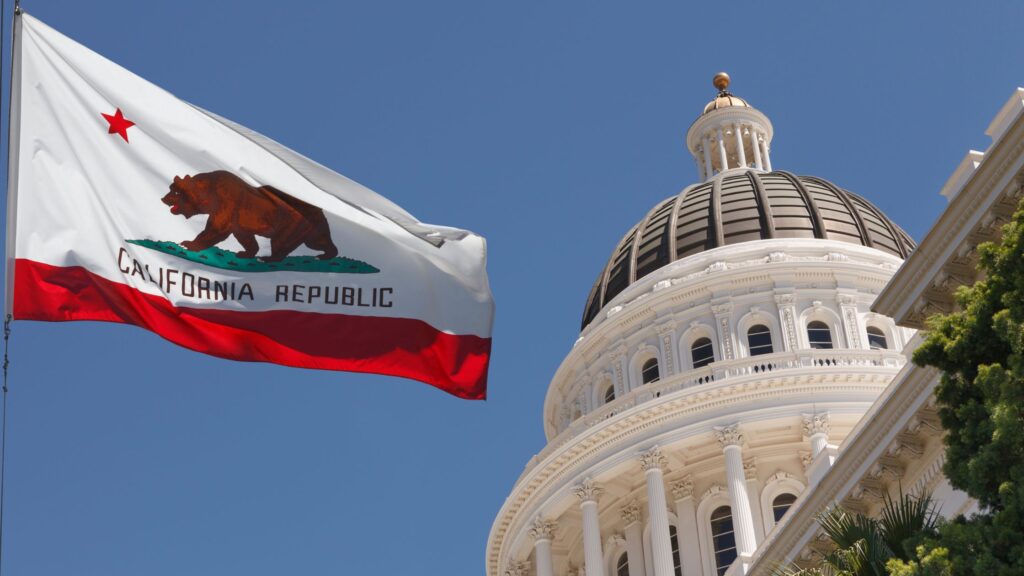Getting ready for California’s new climate-related laws.
California has seen its fair share of climate-related occurrences over the last few years — wildfires, severe storms and floods, and even a rise in sea-level. In response, the State has enacted three new climate-related laws: The Climate Corporate Data Accountability Act (SB 253), the Climate-Related Financial Risk Bill (SB 261), and the California Climate Disclosure Senate Bill 219, the latter designed to consolidate and simplify the SB-253 and SB-261 bills. These laws will require large California-based companies and large companies doing business in California to be held accountable for their GHG emissions, monitor their company’s climate risks, and report both to a State agency called the California Air Resources Board (CARB).
The first round of reporting is due January 1, 2026, and your business may be affected. In this article, we’ll take a closer look at the recently passed California climate legislation and what it means for big and mid-sized companies alike.
California’s Climate Corporate Data Accountability Act (SB 253)California’s SB 253, or Climate Corporate Data Accountability Act (CCDAA), is a new state law that requires all large companies doing business in California with annual revenues exceeding $1 billion to report their greenhouse gas emissions (GHGs) each year. Companies of this size will be required to report their Scope 1, 2, and 3 emissions, following the guidance of the Greenhouse Gas Protocol Corporate Accounting and Reporting Standard and the Greenhouse Gas Protocol Corporate Value Chain (Scope 3) Accounting and Reporting Standard.
The Climate Corporate Data Accountability Act is the first law in the U.S. to require companies to report Scope 3 emissions, which often account for the majority of an entity’s emissions. The CCDAA/SB 253 will take effect on January 1, 2026, and the first round of reporting will be due in 2026 on 2025 data. Reporting will be required annually thereafter. Scope 3 emissions reporting would not be required until 2027 on 2026 data. Additionally, all emissions data reported by a company will need to undergo third-party, independent verification (a limited assurance/audit) and will be housed on a new publicly available registration site overseen by CARB.
This climate transparency law will hold large companies accountable for their carbon emission impacts throughout their supply/value chains, while providing investors and consumers with the information they need to make informed purchase decisions.
The law will be phased-in as follows. Emissions must be reported annually:
| Year | CA Company Climate Reporting Requirements by Year SB 253 (companies over $1billion annual revenue) |
| July 1, 2025 | Final regulations / rules released to the public by the California Air Resources Board (CARB). |
| Jan 1, 2026 | Report Scope 1 & 2 emissions based on 2025 energy usage, along with third-party verification (limited assurance/audit). |
| Jan 1, 2027 | Report Scope 3 emissions, in addition to Scope 1 & 2 based on 2026 data, along with third-party verification (limited assurance/audit). |
| Jan 1, 2030 | Reasonable assurance/audit/ third-party verification is added as a requirement for Scope 1 & 2 emissions; limited assurance/audit is added for Scope 3. |
California’s Greenhouse Gases: Climate-Related Financial Risk Bill (SB 261)
California’s Climate-Related Financial Risk Bill (SB 261), or the “CRFRA,” will apply to companies with annual revenues over $500 million, a considerably lower financial threshold than SB 253. Companies with $1 billion annual revenues and above will need to report their GHG emissions (as per SB 253) as well as develop a climate risk report under SB 261.
The purpose of this law is to examine a company’s financial risk caused by climate change, and will require companies to prepare and submit climate-related financial risk reports that are aligned with the recommendations from the Task Force on Climate-Related Financial Disclosure (TCFD). These risks are commonly known as “physical” and “transition” risks.
Physical risks are those risks caused by the actual physical effects of climate change. This can include natural events such as rising sea levels, changes in temperature, or other extreme weather events that may interrupt operations, destroy property, and ultimately increase operation costs.
Transition risks are risks that are associated with transitioning to a lower-carbon economy. They can include new technology, new government regulations, and even consumer preferences. The idea here is that transition risks may lead to lost market share, stranded assets, and/or increased competition for a company and therefore should be reported.
The first report for the CRFRA/SB 261 will be required to be prepared and reported to the California State Air Resources Board (CARB) or the agency’s designated proxy, by December 31, 2026, with reporting taking place biannually afterwards. Moreover, companies will need to make their reports available to the public on their websites.
The Bottom Line for Companies Doing Business in California
The bottom line is that tens of thousands of companies doing any form of business in California will need to start disclosing their Scope 1, 2, and 3 GHG emissions and/or climate-related financial risk information mandated by the State government. SB 253 and SB 261 will affect both public and private companies “doing business” in California.
Blue Sky Climate Reporting Services can help you to better understand these new regulations and to measure and report your company’s Scope 1, 2, and 3 GHG emissions. We can also assess your climate risks and help you to complete your mandatory climate risk reporting as per CA SB 261. Lastly, we can guide you to set realistic GHG reduction goals and implement ongoing energy reduction programs.
We’re here to help – no matter if you’re a large multi-national brand or a family-owned, mid-sized supplier. We offer our expert services at a fraction of the cost of global accounting firms, carbon platforms, or large consulting firms.
Reach out today to complete your mandatory climate reporting today – and to avoid fines of up to $500,000 per year for non-compliance.


